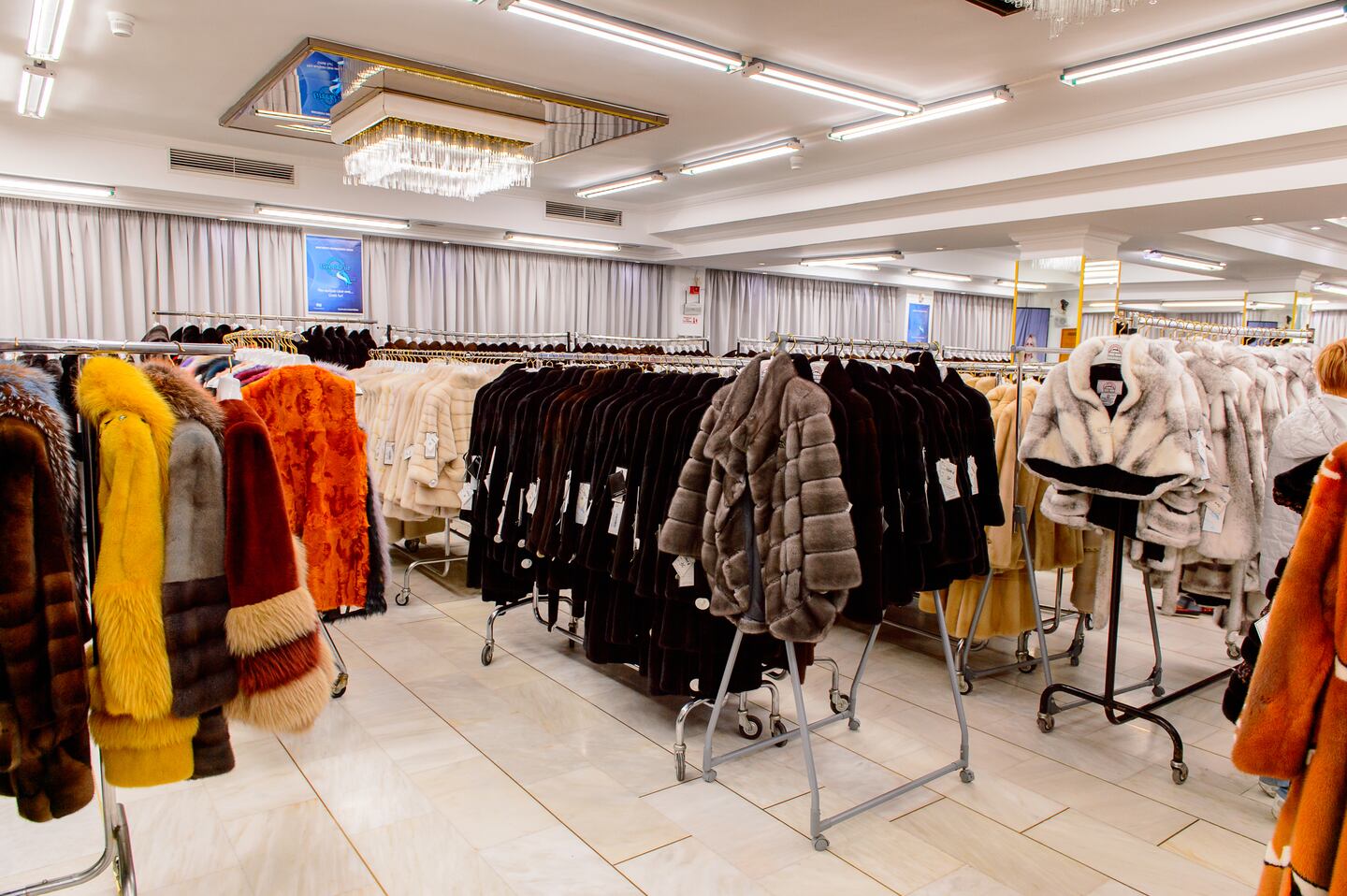
The Business of Fashion
Agenda-setting intelligence, analysis and advice for the global fashion community.

Agenda-setting intelligence, analysis and advice for the global fashion community.

For decades, Antonis Disios’ workshop was abuzz with the sound of sewing machines stitching fur coats for his wealthy Russian buyers. In March, European Union sanctions against Russia over the Ukraine war shut the business overnight.
Disios, like hundreds of other fur businesses in the lakeside city of Kastoria, was banned from exporting to Russia, the main market for Greece’s fur industry. With no domestic market, he sent his 23 workers home and his stockrooms filled up with hundreds of unsold garments.
“This city is going through its worst,” Disios said, standing in his silent showroom. “We’re in despair.”
Holding up a coat he said cost €30,000 ($30,183) to make using one of the most expensive furs in the world, Russian sable, he urged the EU to exempt the industry from sanctions.
ADVERTISEMENT
“They must set us free. Or they can come take them and sell them themselves,” Disios said.
Kastoria is the heartland of a centuries-old fur industry in Greece, Europe’s last remaining fur manufacturing centre and one of the few EU countries still allowing fur farming despite pressure from animal rights groups at home and abroad.
With the demise of Denmark’s huge fur industry during a coronavirus-driven mink cull, animal rights groups hope the cut-off from the Russian market could spell the end of the European fur market, which has already shrunk drastically in response to animal welfare campaigns.
And with a growing number of big fashion houses such as Gucci and Prada committing to not using real fur in the future, activists say the sanctions against Russia could help speed up the decline of an industry they call “morally bankrupt.”
“Russians have traditionally been big buyers. The war has obviously stopped that, which is extremely good news,” said Mark Glover, a spokesperson for Fur Free Alliance, a coalition of more than 50 animal protection groups around the world.
The hit to Greece’s fur trade echoes losses in other sectors, such as agriculture, since the war began. But nowhere is it as stark as in Kastoria, which survived the country’s devastating, decade-long economic crisis thanks to its fur exports.
A busy road cutting through the city is named Furriers’ Avenue, and the streets are lined with now-shuttered fur boutiques with signs in Russian as well as Greek.
Since the mid-1990s, their business model had been focused on wealthy Russian buyers and tourists in the region, and the Hellenic Fur Federation says efforts to penetrate new markets — like South Korea — are an uphill battle.
ADVERTISEMENT
The sanctions also ban shops from selling to Russian tourists in Greece, because fur is considered a luxury good.
“We go where we’re wanted. We’re not like apples. We can’t just find a new market, there need to be certain conditions,” said Apostolos Tsoukas, the federation’s president.
“It’s a matter of time before businesses close, no matter how much help they get from the state.”
So far, the country’s roughly 2,000, mostly family-run businesses, which employ about 4,000 people according to the federation, have been supported by state aid allowing them to avoid firings. The measure, in place for three months until September, allows businesses to suspend contracts of 80 percent of their workers, who will receive state benefits.
Fur garments are among Greece’s top 10 exports, but they have been declining over the years. Exports to Russia amounted to €14 million last year, down from €55 million in 2017, according to Greek statistics data. The number of mink farms fell to 92 in 2020 from 131 in 2018, according to animal rights group VeGaia.
During a visit to Kastoria in June, Akis Skertsos, a senior government minister, said the industry “will be supported - and we will do whatever we can for it to remain viable,” but acknowledged the need for a shift to other activities as well.
“The Greek government has made a serious miscalculation in continuing to prop up this industry,” said Jo Swabe, EU public affairs director at animal protection charity Humane Society International.
“It’s a dying sector anyway,” she said.
ADVERTISEMENT
For the country’s long-standing furriers, letting go of their trade is a hard pill to swallow.
“You would come in here and there was so much noise from all the (sewing) machines working away, and all the people working in here,” said 84-year-old Christos Papadopoulos, struggling to recall a deeper crisis in his 67 years in the business.
“We’re finished,” he said, standing in his empty workshop. “I avoid coming down here. I’ll have a heart attack.”
By Karolina Tagaris; editor: Emelia Sithole-Matarise
Learn more:
Luxury and Fur: Who’s In and Who’s Out?
Moncler and Dolce & Gabbana are among the latest luxury brands to announce a fur ban. But for some big names, the material has enduring appeal.
This week’s round-up of global markets fashion business news also features Korean shopping app Ably, Kenya’s second-hand clothing trade and the EU’s bid to curb forced labour in Chinese cotton.
From Viviano Sue to Soshi Otsuki, a new generation of Tokyo-based designers are preparing to make their international breakthrough.
This week’s round-up of global markets fashion business news also features Latin American mall giants, Nigerian craft entrepreneurs and the mixed picture of China’s luxury market.
Resourceful leaders are turning to creative contingency plans in the face of a national energy crisis, crumbling infrastructure, economic stagnation and social unrest.